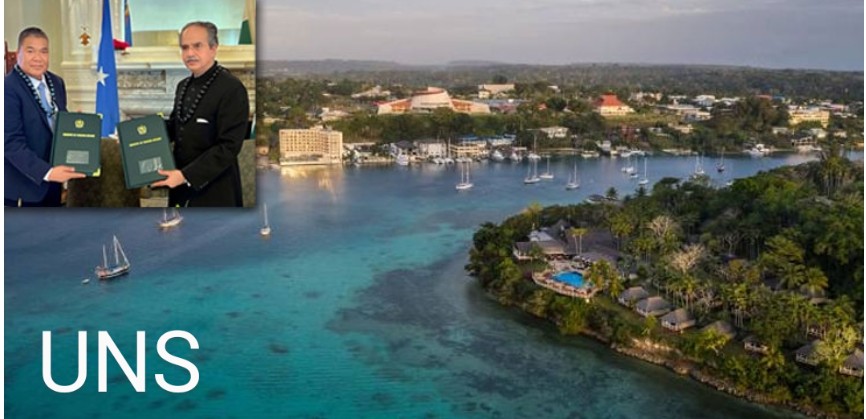On June 18, 2025, Pakistan’s Field Marshal Asim Munir was courted by U.S. President Donald Trump in the White House over lunch. The meeting between Pakistan’s Chief of Army Staff and US President was officially scheduled for one hour but lasted more than two, highlighting the growing significance of Islamabad in Washington’s foreign policy calculus. However, the question arises why the same
President who called Pakistan a state that gave nothing to the US but lies and deceit in
his 1st term is now praising Pakistan’s leadership and calling Pakistan a great nation
with much fanfare?
The answer can be traced in the pages of history. Since its inception, Pakistan has
always tried to forge amicable relations with the United States. However, the
trajectory of relations between the two countries so far has been a rollercoaster due to
the United States' opportunistic approach toward Pakistan. The two countries drew
closer only when the US needed Pakistan to further its global objectives. During the
formative years of Pakistan, the US needed Pakistan as a buffer state between
capitalism and communism and hence, relations between them were of a great cordial
nature. However, the US abandoned Pakistan when its objectives were achieved and
instead sanctioned Pakistan through the Symington Amendment to the U.S. Foreign
Assistance Act, citing Pakistan's nuclear enrichment without concern for its existential
need to balance India. But the cordiality resumed again once the US needed Pakistan
to fight the then Soviet Union in Afghanistan. Islamabad was abandoned again after
the soviet defeat. Warmth returned when the U.S. sought Pakistan's help in the global
war on terror following the 9/11 attacks, but Pakistan was once again abandoned,
repeating the previous pattern. As conventional wisdom says, "History repeats itself ".
The US has started taking an interest in Pakistan again, driven by both commercial
and strategic interests.
The Trump administration is interested in the mineral economy. According to recent
geological estimates, Pakistan's mineral reserves are valued at approximately
$6 trillion. In Pakistan, Field Marshal Asim Munir has been advocating for the
exploitation of this wealth. The federal government's intent is evident. Balochistan has
already enacted its Mines & Minerals Act (2025), and a similar bill for Khyber
Pakhtunkhwa is currently under consideration, moves that echo federal ambitions to
centralize control over mineral resources. Speaking to the Pakistani diaspora in
Washington, Munir said
‘If the United States invests in Pakistan’s vast mineral resources, it could earn $10 to
$15 billion annually, with profits continuing for up to 100 years’
There are reports that state that Asim Munir facilitated investments into the country's
critical resources to his host during his meeting in the White House, A strategy to win
over the Americans.
In the same vein, cryptocurrency is another avenue that can make Pakistan attractive
to the Trump Administration. In the first week of March this year, the Trump
administration issued an executive order to establish a strategic Bitcoin Reserve.
Trump declared that the move will evolve this critical industry and called his
administration’s move an act aimed at making America Great Again. Discerning
Trump enthusiasm with cryptocurrency, Pakistan pitched itself as a country interested
and useful in cryptoeconomy, taking certain initiatives like the formation of Pakistan’s
Crypto Council (PCC) in the same month Washington established its Strategic Bitcoin
Reserve. Bilal Saqib, the CEO of PCC and special assistant to the PM on Blockchain
and crypto, visited the US in the first week of June to forge cooperation in the crypto
sector.
While some observers attribute the recent thaw in ties to President Trump’s apparent
inclination toward strongmen like Asim Munir, deeper strategic interests are also
undeniably at play.
One of the most significant is the strategic autonomy of India. Post-9/11 U.S. foreign
policy has long relied on India as a bulwark against the rise of China. Washington
signed many pacts and agreements, including the 2005 Indo-US Civil Nuclear
agreement, Logistics Exchange Memorandum of Agreement (LEMA),
Communications Compatibility and Security Agreement (COMCASA), Basic
Exchange and Cooperation Agreement for Geo-spatial Intelligence (BECA),
alongside multilateral engagements like the Quad to operationalize this strategy.
However, the evasive balancing strategy of New Delhi where it tries to avoid the
binary choice in the yet-to-be-intensified US-China rivalry. India is using strategic
ambiguity to prevent ending up in the abyss of binary options. This doesn't suit US
interests. To make New Delhi more aligned with Washington's foreign policy
objectives, to some scholars, the US wants to use Pakistan as a lever against India.
The same strategy could also be capitalized by the US to get a trade deal benefiting
the US vis-à-vis India.
For Pakistan, this opening presents an opportunity to institutionalize long-term ties
with the United States. Islamabad can use this moment to build sustainable economic
relations, cooperation in research, tourism, textiles, and other sectors. However, while
doing so, Pakistan needs to tread this tight rope cleverly. Moving too close to the US
can antagonize China, Pakistan's trusted friend in times of need.
Foreign Policy is all about managing relations in ways that best serve the country's
interests. People in the power corridors of Pakistan must navigate the complexities of
global affairs in ways that avoid over-reliance on any global power, as even ironclad
friends, part their ways when their interests diverge in International Affairs.




